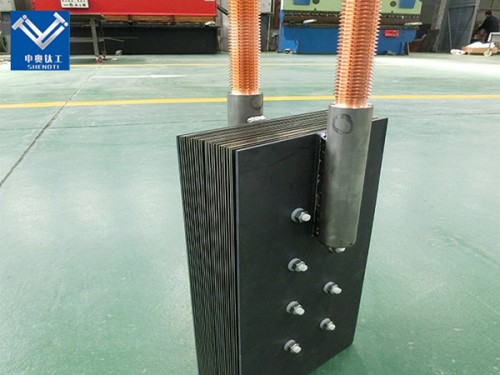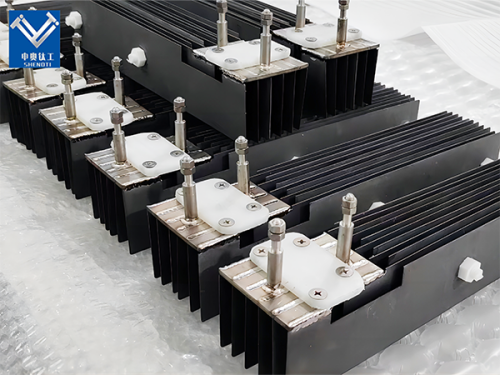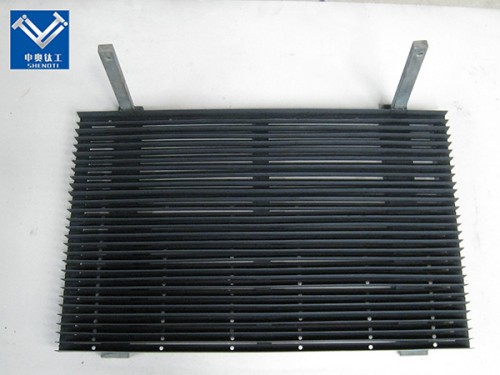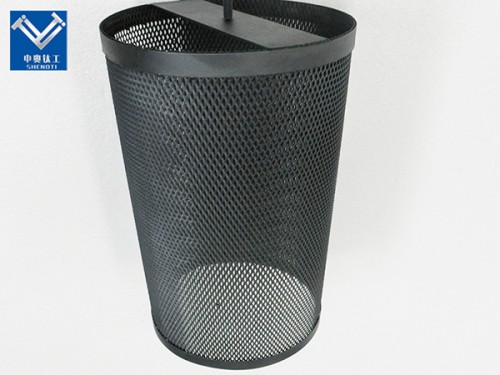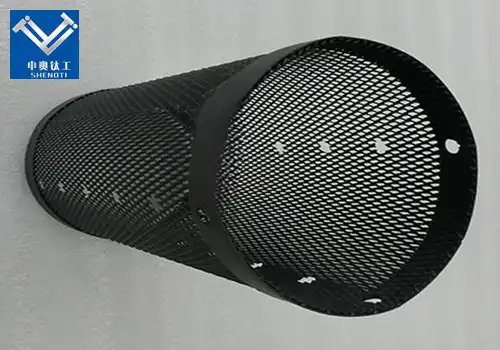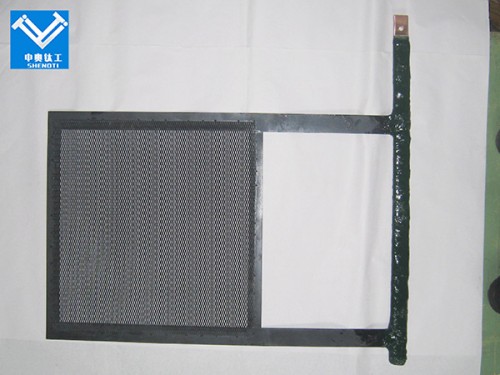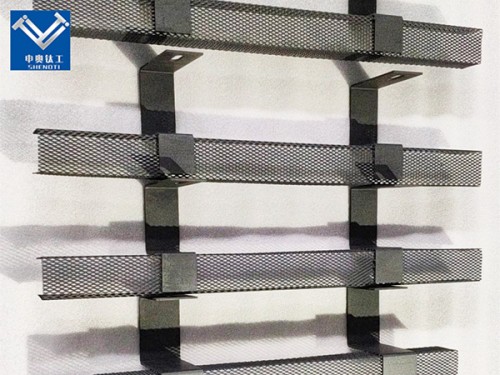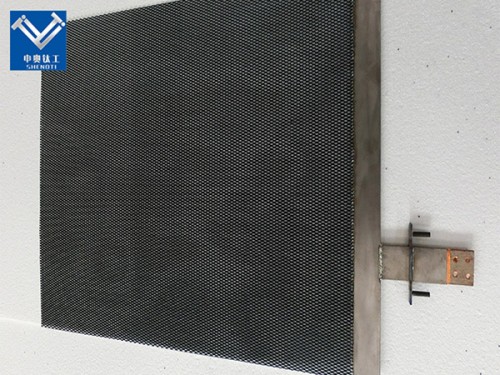
What is a Titanium Anode for Electrolytic Disinfection in Seawater Aquaculture?
2025-08-28 15:00:36
Seawater aquaculture is one of the fastest-growing sectors in the global food industry, providing sustainable solutions for seafood supply. However, with rapid expansion comes the pressing challenge of maintaining water quality and preventing the spread of pathogens. Traditional chemical-based disinfection methods often pose risks of residue, secondary pollution, and harm to aquatic organisms. This is where the titanium anode for electrolytic disinfection in seawater aquaculture provides a groundbreaking solution.
By utilizing advanced electrochemical technology, titanium anodes can generate powerful oxidizing agents directly in seawater, ensuring effective sterilization without chemical additives. This article explores the detailed product description, manufacturing process, application fields, and real-world case studies to help industry professionals understand why titanium anodes are becoming the preferred choice for seawater aquaculture disinfection systems.
What is a Titanium Anode for Electrolytic Disinfection in Seawater Aquaculture?
A titanium anode for electrolytic disinfection in seawater aquaculture is a specially designed electrode used in electrolysis cells to purify and disinfect seawater. It is manufactured from high-purity titanium substrate, coated with mixed metal oxides (MMO) such as iridium, ruthenium, or platinum, which provide excellent catalytic activity and corrosion resistance in chloride-rich marine environments.
Key Characteristics Titanium Anode for Electrolytic Disinfection in Seawater Aquaculture
Material Base: High-grade titanium (ASTM B265 standard).
Coating Layer: MMO (IrO₂, RuO₂, Pt) to enhance electrochemical performance.
Operating Life: 5–15 years depending on usage conditions.
Current Efficiency: High oxygen evolution efficiency, stable at low voltage.
Corrosion Resistance: Exceptional durability in high-salinity seawater.
The main purpose of these anodes is to produce oxidants such as chlorine, hypochlorous acid, and hydroxyl radicals through the electrolysis of seawater. These oxidants act as strong disinfectants, eliminating bacteria, viruses, algae, and biofouling organisms that can compromise aquaculture health.
Manufacturing Process of Titanium Anode for Electrolytic Disinfection
The reliability of a titanium anode for electrolytic disinfection in seawater aquaculture lies in its sophisticated manufacturing process.
1: Titanium Substrate Preparation
High-purity titanium plates, rods, or meshes are selected.
Surface pretreatment involves degreasing, acid etching, and sandblasting to create a clean, rough surface for strong coating adhesion.
2: Coating Application
Multiple layers of mixed metal oxide (MMO) are applied using thermal decomposition, brush coating, or plasma spraying.
Each layer is precisely controlled for thickness and composition to optimize catalytic efficiency.
3: High-Temperature Sintering
The coated titanium is sintered at high temperatures to bond the MMO coating firmly with the titanium substrate.
This ensures a long-lasting electrode surface capable of withstanding harsh marine electrolytic environments.
4: Quality Inspection
Electrochemical tests are conducted to evaluate current efficiency, coating adhesion, and service life.
Corrosion resistance tests confirm durability in simulated seawater.
Through this process, the final product achieves both stability and superior electrochemical performance.
Advantages of Titanium Anode for Electrolytic Disinfection
Choosing a titanium anode for electrolytic disinfection in seawater aquaculture provides multiple benefits compared to conventional disinfection methods.
1. Environmentally Friendly
Unlike chlorine tablets or chemical disinfectants, electrolytic disinfection does not introduce harmful residues into the water. The process relies only on seawater and electricity, making it a sustainable choice.
2. Cost-Effective Operation
Although the initial investment may be higher, titanium anodes have long service lives and reduce the need for continuous chemical purchases, lowering long-term operational costs.
3. High Sterilization Efficiency
Electrolytic disinfection produces active chlorine species directly in situ, ensuring immediate and highly effective pathogen elimination.
4. Durability and Stability
Titanium’s natural corrosion resistance, enhanced by MMO coatings, allows continuous operation in high-salinity seawater without performance degradation.
5. Safe for Aquatic Life
Controlled disinfection levels protect fish, shrimp, shellfish, and other aquaculture organisms, avoiding toxic chemical exposure.
Application Fields in Seawater Aquaculture
1. Fish Farming
In intensive marine fish farming, water circulation systems are vulnerable to bacterial infections and algae growth. Titanium anode for electrolytic disinfection in seawater aquaculture helps maintain stable water quality, reducing disease outbreaks and mortality rates.
2. Shrimp and Shellfish Farming
Shrimp and shellfish are particularly sensitive to pathogens. Electrolytic disinfection ensures biosecurity, enhancing survival rates and improving harvest quality.
3. Algae Cultivation
In marine algae aquaculture, titanium anodes prevent unwanted microbial contamination, ensuring optimal algae growth and productivity.
4. Hatcheries and Breeding Facilities
Hatcheries require ultra-clean seawater conditions to protect fragile larvae. Electrolytic disinfection using titanium anodes guarantees pathogen-free environments essential for successful breeding.
Case Studies of Titanium Anode Applications
1: Large-Scale Marine Fish Farm in Norway
A leading salmon aquaculture facility installed titanium anodes for electrolytic disinfection in seawater aquaculture. Within six months, biofouling decreased by 70%, and fish mortality dropped significantly, demonstrating the system’s efficiency.
2: Shrimp Hatchery in Southeast Asia
In a tropical shrimp hatchery, waterborne diseases frequently caused mass losses. After introducing electrolytic disinfection with titanium anodes, bacterial infections reduced drastically, improving shrimp survival and reducing antibiotic dependence.
3: Offshore Aquaculture in Japan
An offshore aquaculture system used titanium anodes to manage algae and bacteria growth. The result was stable water quality, extended equipment lifespan, and compliance with environmental regulations.
Titanium anode technology for electrolytic disinfection of marine aquaculture
1. Mixed Metal Oxide (MMO) Coating
A catalytic coating made of precious metal oxides like iridium and ruthenium, enhancing electrode activity and extending service life.
2. Electrolytic Disinfection
The process of passing electric current through seawater to generate disinfecting agents such as chlorine and hypochlorous acid.
3. Current Density
The amount of current passing per unit area of electrode surface, directly influencing disinfection efficiency.
4. Oxidizing Agents
Highly reactive molecules generated during electrolysis, responsible for destroying bacteria, viruses, and organic contaminants.
The titanium anode for electrolytic disinfection in seawater aquaculture represents a cutting-edge, eco-friendly, and highly effective solution for maintaining clean water in marine farming. Its robust design, superior electrochemical performance, and long service life make it an indispensable component in modern aquaculture systems.
For aquaculture businesses aiming to improve water quality, reduce operational costs, and ensure sustainable growth, titanium anodes offer unmatched value.
Contact Us
Baoji City ShenAo Metal Materials Co., Ltd. specializes in the research, development, and manufacturing of advanced metal materials and electrodes. With years of expertise in titanium anode technology, we provide customized solutions for seawater aquaculture, wastewater treatment, and industrial applications.
Contact Us
Baoji City ShenAo Metal Materials Co., Ltd.
📧 Email: zh@baojiti.com.cn
Tel: 18729731603
Website: https://www.shenaocladplate.com
YOU MAY LIKE











